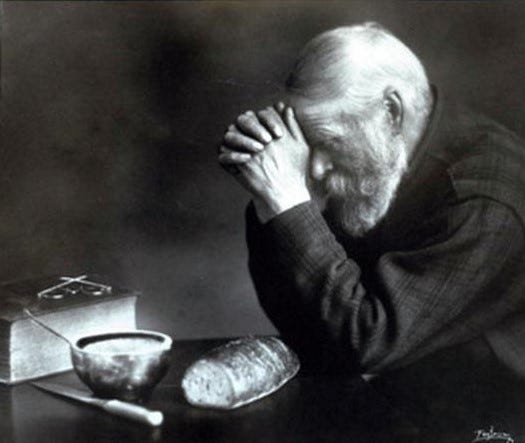It was quite a surprise to learn that the Armas essay on England is the focus of renowned historian David Starkey’s latest video. A surprise, and a pleasant one at that: his work has been a favorite for the two decades since I happened to watch his excellent 2004 Monarchy documentary series. Have a watch on his commentary here, not because it’s about my work, but because his thoughts (which occupy nine-tenths of the thing) are worth your time:
Dr Starkey makes an excellent point in here that I’d like to expand upon a bit. I mentioned in my original essay that "Britain and England are not synonyms,” and that moreover it is England, not Britain as a whole, that is the center and essential font for the American inheritance. The corollary to all this is that devaluation of the English source is the prerequisite to the destruction of traditional America. (More on this below.) What I did not discuss, but Dr Starkey does, is the extent to which that same devaluation is at the heart of the United Kingdom’s own troubles.
Starkey notes that the U.K. has been in the process of “devolution” of governance for the past generation, and that this has mostly meant elevating every nation of the union except England. Wales, Scotland, and Northern Ireland receive devolved assemblies in which the English have no say, but England remains under the direct governance of the national Parliament, and so non-English legislators have a direct voice in all aspects of English governance, but not vice versa. (There is also a municipal / metropolitan / administrative-state aspect to this phenomenon, as set forth in the Starmer regime’s agenda, which is incidental to this discussion.) This is the so-called West-Lothian question, as named by Enoch Powell, and the variety of procedural workarounds for it across many years have mostly been discarded as adding complexity without improving governance. Of course, one might tag the whole devolutionary exercise in that vein, except that “improving governance” was never really the point of the thing. The fact that two of the three devolved national legislatures have managed to threaten or tend toward the dissolution of the United Kingdom — most dramatically in the 2014 Scottish-independence referendum, and more inexorably in Stormont slipping toward republican control — since their inception might be a signal to any regime interested in the perpetuation of its accompanying nation. But as we see, those interests diverge.
(Let us pause here to note that this is another example of the very strange British fixation upon American ideas of governance. In this case, it is the forms of American federalism without the underlying substance, and still less the most-necessary component for any enduring regime, which is rootedness, inheritance, or tradition as one prefers. Of course the United States itself has been slouching toward administrative-autocratic centralism for well over a century, but the federalist inheritance remains and is even vital in a handful of remnants including Texas. It is very difficult to discern a similar grounding in Britain today.)
Great Britain after the late 1990s therefore finds itself very much in the framework of the Soviet Union of the late 1980s, and I don’t just mean the thought policing, though I do mean the elites’ self-concept as colonialist administrators adjudicating between favored and disfavored tribal cohorts. I also mean the profusion of national governments in what remains a de jure centralized state. This sort of thing is very hard to claw back once local elites have a stake in the local institutions. Parliamentary supremacy is enduring as theory, but it goes only as far as Parliament is willing to assert it. This isn’t the Parliament that, assured of itself after seeing off two Stuarts in a century, plunged into war with all America. This is a Parliament that won’t touch Holyrood. However, it has avoided the Soviet structural error in one signal respect: unlike its counterpart’s fatal concession of a government to its core constituent nation in Russia, it has never conceded a national government to England, and it never will.
The reasons for this are fairly obvious: one can easily envision the regime surviving the loss of any of its national divisions except for England. This implicit grasp of English centrality is paradoxically married to a regime desire to repress, diminish, or downplay English identity and distinctiveness. The examples of this are too numerous to count, and have accelerated since 2020 and the (again, American-inspired) progressive eradication of memory and symbol in favor of a race-based social reordering. So, for example, you get what you have here, with police — confronted with a crowd of pro-Hamas demonstrators — issuing warnings to two men who are merely holding an English flag. This is, again, classic colonial administration, in exhibiting both cohort management, and also signaling as to which local group is favored, and which is not, by the regime.
The regime that rules England does not favor the English, and moreover will not allow the English liberties in governance afforded to all other nations under the regime, and one wonders how long this can last.
This has application and relevance beyond the specific instance. What we see here is a phenomenon that repeats itself across cases, in what might be termed the disparagement of the norm. The English are the normative people of the United Kingdom, and this therefore — counterintuitively — means that for the regime the English are bearers of sins but not virtues, the points of departure but not the points of reference, and are improved to the extent that they are lessened. The American normative counterpart would be simply “whites,” which although an idiot’s thumbnail of actual American demographics and folkways — the cultural and historical heterogeneity of “white” America being genuinely extraordinary — has great purchase in elite minds. (Here for example is the Minnesota Historical Society’s description, here is the Smithsonian’s, and here is something so appalling that it defies shorthand. Actual racists love this stuff, by the bye, because they agree with the progressives, albeit with an inverted value scale.) This leads directly to embarrassing and candidly pathetic acts of self-abasement and false humility like the ongoing culinary conversation between Tim Walz and Kamala Harris, in which Walz plays the normative-cohort man wholly bereft of positive or meaningful food-culture folkways, for the benefit of an elite political cohort that is enthusiastic for the diminishment of his imputed cohort.
As a Southerner and a Mexican in equal measure with neither connection to, nor interest in, things Minnesotan, I will do what the Governor of that state will not, and remind all present that Minnesota culture claims the most-famous meal since the Last Supper.
It would be an analytic error to term this as reverse racism, on two counts. The first is that racial bigotry is what it is regardless of the target, without any directional reference. The second is that this puts it into the wrong framework and thus leads to a misunderstanding of its purpose. The intent here is not to do to “whites” — let’s use the term for a moment, although the likes of me, and the likes of Dr David Starkey, both also “white,” have little to nothing to do with the likes of Tim Walz — what was done by way of grotesque iniquity and persecution to African-Americans, or to any other genuinely oppressed group in history. That may happen in discrete cases but it isn’t a meaningfully widespread outcome. What is actually happening is something else entirely, and it makes the English case relevant: it is the disparagement of the norm.
The disparagement of the norm is not, at bottom, a racial phenomenon. It is a political phenomenon. The political purpose is not to put this or that group up top on the social hierarchy — although there are certainly plenty of activists who, with equal parts malice and naïveté, believe it — but to serve the regime by means of the dissolution of the nation. As we do so often here at Armas, we must go back to Aristotle’s Politics and reference the fundamental definition of the state, as the partnership toward an agreed and noble end, undergirded by the philia made possible by common religion, common history, and common heritage. You have to break that philia to break the nation — and once you break the nation, you may rule without meaningful reference to it. What remains is not the nation, but mere empire. It is a polity of sorts, but one devoid of purpose, and therefore dead even as it seems to live.
This is why you get national legislatures everywhere in the United Kingdom but England. This is why you get men bearing English flags warned by English police that they may be taken away. This is why English institutions of higher education refuse to teach the explicitly Anglo-Saxon heritage. This is why a Democratic vice-presidential nominee in America, brimming with mediagenic amiability, gladly exposits the supposed inferiority of his own people. This is why any European political party expressing the most-ordinary sort of nationalist sentiment is automatically tagged “far right.” This is why Hamas can kidnap and execute an American citizen, and the American President does nothing — except, of course, turn his ire upon Israel. Open the aperture and look further back: this is why De Gaulle issued orders for French soldiers to allow the slaughter of French citizens at Oran. When social pressure doesn’t work, there is always the iron hand. This kind of thing is not just an Anglosphere phenomenon — nor is it new. The regime and the nation were never the same, and one question that probably ought to be confronted three centuries into the republican era is whether or not that separation is widened or not versus its alternatives — and its predecessors.
We can look toward a very different sort of civic consciousness nearly everywhere. We can see Southerners organizing themselves into companies to defend Texas in the depths of our revolution. We can see Irish fire companies calling for volunteers to head north after the Luftwaffe smashed Belfast — and every man stepping forward. We can see Israelis learning that their nation is plunged into terror and war — and catching the first flight home. There is the nation, and there is the regime, but only the nation lives.





